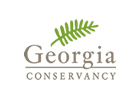By Jo Medico
As an eldercare executive, staying ahead in the competitive landscape requires a strategic marketing plan that aligns with your business goals. In 2025, the digital marketing landscape will continue to evolve, and adopting the right strategies will be key to increasing occupancy rates, enhancing brand reputation, and generating quality leads. This roadmap outlines where you should focus your marketing efforts to ensure a strong return on investment (ROI).
1. Strengthen Your Online Presence with Local SEO
Why It Matters:
Most families begin their search for eldercare services online. Optimizing your website and Google Business Profile ensures that your facility appears in “near me” searches, driving more inquiries and tours.
Key Strategies:
- Optimize your Google Business Profile with accurate contact details, high-quality images, and positive reviews.
- Focus on local SEO keywords (e.g., “assisted living in [your city],” “best memory care near me”).
- Encourage satisfied families to leave Google and Yelp reviews to boost credibility.
- Ensure your website is mobile-friendly and loads quickly for better user experience and SEO rankings.
2. Leverage Paid Google Ads for Targeted Lead Generation
Why It Matters:
Paid advertising helps you reach families actively searching for eldercare solutions, allowing for a more direct and measurable lead generation approach.
Key Strategies:
- Use Google Search Ads to target keywords like “skilled nursing facility near me.”
- Implement remarketing campaigns to stay top-of-mind with website visitors.
- Utilize call tracking and conversion tracking to measure campaign effectiveness.
- A/B test ad copy to refine messaging for better engagement and ROI.
3. Build Trust Through Video Marketing and Storytelling
Why It Matters:
Families making eldercare decisions are emotionally driven. Video testimonials and behind-the-scenes content help build trust and showcase the quality of care your facility provides.
Key Strategies:
- Create resident and family testimonial videos to highlight positive experiences.
- Share behind-the-scenes videos of your caregivers to humanize your brand.
- Use short-form videos on Facebook, Instagram, and LinkedIn to boost engagement.
- Invest in YouTube ads to reach families searching for eldercare guidance.
4. Enhance Community Engagement & Local Partnerships
Why It Matters:
Eldercare is a relationship-driven industry. Engaging with the local community builds trust and generates referrals from healthcare professionals and senior organizations.
Key Strategies:
- Partner with local hospitals, rehab centers, and senior groups for referral networks.
- Sponsor and participate in local events and health fairs to establish credibility.
- Offer free educational workshops on eldercare topics for families and caregivers.
- Engage in local PR efforts by sharing news and success stories with local media outlets.
5. Implement Personalized Email Marketing Campaigns
Why It Matters:
Email remains a powerful tool for nurturing leads and staying in touch with families considering eldercare options.
Key Strategies:
- Segment your audience to send personalized email campaigns based on their stage in the decision-making process.
- Share valuable content like case studies, caregiver tips, and resident success stories.
- Use automated follow-ups for tour inquiries and past leads to encourage conversions.
- Highlight promotions, events, and special offers to increase engagement.
6. Optimize Your Website for Conversions
Why It Matters:
A well-optimized website ensures that visitors take action—whether booking a tour, calling for information, or submitting an inquiry form.
Key Strategies:
- Use clear call-to-action (CTA) buttons for easy navigation.
- Provide downloadable guides (e.g., “How to Choose the Right Assisted Living Facility”) to capture leads.
- Display trust signals such as awards, certifications, and family testimonials.
- Implement live chat or AI-powered chatbots to assist visitors in real-time.
7. Monitor Compliance and Data Privacy in Marketing
Why It Matters:
Eldercare businesses must adhere to HIPAA, CMS, and other regulations when marketing their services.
Key Strategies:
- Ensure your website and email campaigns are HIPAA-compliant.
- Avoid misleading advertising claims that could lead to regulatory issues.
- Train your team on compliance best practices for digital marketing.
- Work with marketing partners who understand the eldercare industry’s regulations.
Conclusion
By focusing on these seven key areas, eldercare executives can create a marketing strategy that not only drives occupancy rates but also builds trust and credibility within the community. Whether you’re improving SEO, leveraging Google Ads, or enhancing community engagement, the key to success is consistency and data-driven decision-making.
Are you ready to optimize your marketing strategy for 2025? Schedule a strategy call today for a customized marketing plan tailored to your eldercare business with our Eldercare Digital Marketing Services.








